[I am putting the latter part of this article first, it has lots of history (from a slightly skewed point of view, imho.]
“Before there was NPR, there was Pacifica.
Its founder was Lewis Hill, a pacifist and conscientious objector in World War II (during which he was assigned to a work camp “moving rocks from one side of the road to the other,” as he later put it), along with his friends Eleanor McKinney and Richard Moore, a married couple. Their first application for an AM-band radio license in working-class Richmond was rejected by the FCC. And so it was that the first station, KPFA, was launched as an FM station in 1949 in the university town of Berkeley.
“They wanted it to be more of a popular station than what it became,” says Matthew Lasar, a former Pacifica volunteer, who has written two books about the network. “It became sort of a station for people around UC Berkeley.”
FM was so new that KPFA had to give subscribers FM radios in order to be heard at all.
Although Hill’s goal was to promote pacifism and civil liberties, the concept was to give both sides time — and foster robust debate. Emerging conservative leaders such as National Review founder William F. Buckley Jr. and then–young Republican Caspar Weinberger were heard often. That changed when the McCarthy era set in, and Pacifica’s board of directors was dragged in front of a U.S. Senate subcommittee on subversive activities.
“They barely survived it, but once they did, their public justification was no longer ‘free speech for everyone,’ it was ‘the place where you hear the point of view you wouldn’t otherwise hear,’ ” Lasar says.
Pacifica flourished: KPFK launched in L.A. in 1959 (its 110,000-watt transmitter, perched atop Mount Wilson, is the most powerful antenna west of the Mississippi River; it can be heard to the Mexican border), followed by WBAI in New York in 1960, KPFT in Houston in 1970, and WPFW (devoted mostly to jazz) in Washington, D.C. in 1977.
Film critic Pauline Kael got her start at Pacifica, and philosopher Alan Watts had a show for two decades. Bob Dylan appeared frequently on WBAI, which became hugely influential.
“Much of what you hear on talk radio today, certainly Howard Stern, stems from the experiments and from the pioneering of WBAI,” Lasar says.
Pacifica pushed boundaries: In 1957 it broadcast a recording of Allan Ginsburg’s profane Beat Generation poem “Howl,” albeit in an awkwardly edited version. In 1973, WBAI broadcast George Carlin’s “Seven Dirty Words” routine and was censured by the FCC. The dispute was resolved by the U.S. Supreme Court, which ruled that Carlin’s sketch was indecent — but not obscene. A year later, the Symbionese Liberation Army delivered tape recordings of the kidnapped Patty Hearst to KPFA and KPFK. The FBI demanded that KPFK turn over the tapes, but general manager Will Lewis refused and was thrown in jail.
No other event shaped and galvanized Pacifica in the 1960s more than the Vietnam War. It opposed the war long before Walter Cronkite or any other mainstream media outlet. WBAI’s Chris Koch became the first American to cover the war from Hanoi in 1965, and the station later broadcast the Senate’s Watergate hearings gavel to gavel.
Pacifica’s decline in the late 1970s can be attributed to the end of the Vietnam war and the rise of NPR.
“National Public Radio was kind of a body blow to Pacifica,” Lasar says. “It was a more professional and less strident alternative.”
In Los Angeles, ousted KPFK program director Ruth Hirschman (now Ruth Seymour) built KCRW into a powerhouse. Many of Pacifica’s volunteer programmers were happy to let “corporate” NPR surpass them in listenership; Pacifica was “community radio.”
“The central underlying problem at Pacifica,” Marc Cooper says, “is that in the end, what dictates everything is the individual programmer’s desire to hold onto his or her airtime. Management has always been weak.”
Volunteer hosts with half-hour or hourlong weekly shows viewed them as their personal property. According to legend, one elderly activist tried to will away his time slot when he died.
But most paid news staff, like Cooper, as well as upper management, wanted to professionalize Pacifica and unite in one network. Satellites were becoming affordable enough for Pacifica to produce a network show and beam it to its stations and affiliates, as NPR was doing with All Things Considered.
Pacifica launched Pacifica National News, a national, half-hour newscast, and despite resistance from some stations, especially Berkeley, modernizers pushed ahead in 1996, launching Democracy Now!, an hourlong, guest-oriented show. First designed with a preposterously unwieldy structure, co-hosted by four anchors in four cities, it eventually was consolidated to its two current hosts: Juan González, a New York Daily News columnist, and WBAI’s talented news director, Amy Goodman.
Cooper has plenty of bitterness about Pacifica but saves his real vitriol for Goodman: “Amy’s an evil bitch. Amy would be perfect in the [New Jersey governor Chris] Christie administration. She’s a brass-knuckles fighter.”
The revolution began innocently enough. In the 1980s, tension grew between the modernizers and the local programmers, some of whom had been pushed out for new shows. Others feared they’d be next. It was NIMBY-ism, but with microphones.
In 1999, Pacifica CEO Lynn Chadwick fired KPFA Berkeley general manager Nicole Sawaya. When KPFA staffers asked Chadwick who was in charge, she replied, “I guess I will be for now.”
KPFA was the most insular and provincial station, highly resistant to change or centralization. “The Berkeley station is like an ethnic radio station,” Cooper says. “It speaks Berkeley to everybody with a ponytail and long hair.”
On the air, programmers openly revolted against Chadwick’s maneuver: Every hour they read a one-page statement denouncing Pacifica and calling for the rehire of Sawaya and another host.
Groups of dissident listeners began to form, and disgruntled ex-programmers sprang out of the woodwork, dubbing themselves the “banned and fired.”
Chadwick, to everyone’s amazement, shut down KPFA in Berkeley, had the staff removed by armed guards, cut the live transmitter feed and replaced it with archived shows from Pacifica. The first substituted content was Bus Riders Union founder Eric Mann giving a Marxist analysis of the 1960s.
Protests erupted. No fewer than three lawsuits were filed against the Pacifica board. Ten thousand people marched in Berkeley. Left-wing activists and commentators nationwide, including Howard Zinn, Noam Chomsky and Michael Moore, rushed to KPFA’s defense.
“They create this sweeping narrative: ‘They’re going to corporatize Pacifica and sell off KPFA!’ ” Cooper says. “It’s really science fiction, and the left is so stupid that they bought into it.”
Lasar, however, says otherwise, citing an email that Pacifica National Board member Michael Palmer accidentally sent to an outside group, speculating about the sale of KPFA’s powerful radio signal and estimating it could net up to $75 million.
By now the revolution had spread. Cooper remembers walking up to the KPFK offices on Cahuenga Boulevard near Universal Studios, past a crowd of elderly protesters — “professional bottom-door activists with no life and nothing to do,” he calls them — who accused Cooper of being an agent for the CIA. One sign read, “More activists, less authors.” Cooper says: “That’s about one step removed from Pol Pot. It’s like, ‘Let’s kill everyone with glasses.’ ”
Websites sprang up like wildflowers — Save Pacifica, Save KPFA — three or four at some stations. The just-emerging Internet helped dissidents organize and raise money. They hired a campaign consultant, started a boycott that urged listeners to not pledge money to Pacifica — a threat to the network’s very survival — and demanded that the board resign, to be replaced by a democratically elected board.
Democracy Now! host Amy Goodman joined the fray, siding on the air with the revolutionaries, signing petitions and giving an open microphone to the boycott of the network that was paying her comparatively handsome salary. She essentially became the public face of a movement that was targeting board members and posting leaflets in their neighborhoods, which read: “Wanted for criminal theft of a radio station.”
“These [were] brownshirts,” Cooper says. “And Amy was their leader and she knew it. And I told that to her face: She can fool a lot of people a lot of the time, but I know she’s a thug.” (Goodman did not return several calls for comment.)
On Dec. 12, 2001, three months after the World Trade Center towers fell in New York City, the Pacifica board resigned and cut a deal with the revolutionaries — a legal settlement Lasar says led to “the most excruciatingly democratic bylaws in the history of broadcasting.”
The rebels now had control of an organization mired in chaos and millions of dollars in debt, much of it to lawyers. Bills would pile up higher as the new guard purged many old managers, who had to be given sizable settlements (according to one source, the KPFK general manager’s severance amounted to several hundred thousand dollars).
Hours before the settlement was approved, one of the plaintiffs called Lasar and said, “Matthew, the second-worst thing that could possibly happen has happened: We won.”
Within a few months, Democracy Now! was privatized. In what may have been a reward for Goodman’s support of the revolution, she was handed complete ownership of the show. For free. In fact, they paid her to take it, handing Goodman a contract worth hundreds of thousands of dollars a year — and gave her an automatic 4 percent raise every year, regardless of the size of her listenership or the money she raised.
According to former board member Tracy Rosenberg, Goodman now gets fees of around $650,000 for the right to air her show and for her fundraising services. Rosenberg says: “When you go to business school, they tell you that’s how not to sign a contract.”
Today, Pacifica’s debts amount to roughly $3 million; $2 million of that is owed to Democracy Now!, which is also the name of an independent nonprofit run by Goodman.
“Honestly, I get where she’s coming from,” says Uprising host Sonali Kolhatkar. “Every journalist fantasizes about having their own media institution, and she pulled it off.” She adds that Goodman “fundraises tirelessly for Pacifica, for all five stations — sometimes simultaneously — on top of doing her own show. I have great admiration for her.”
Today, Democracy Now! is a worldwide brand; it has far more listeners via podcasting and syndication than Pacifica itself, which no longer produces any regular national programming.
Goodman may be Pacifica’s biggest creditor, but she’s far from the only drain on its finances. Board elections cost somewhere in the neighborhood of $200,000 — no small price for a network with a $13 million annual budget. The meetings themselves cost about $20,000 each to fly in 20-plus people and put them up for the weekend, and they’re dominated by bickering. Members regularly invoke Robert’s Rules of Order, and can take half an hour simply to approve the minutes of a previous meeting.
“All sorts of machinations come with that,” says elections supervisor Terry Bouricius. “Rather than seeking common ground, the goal is to embarrass and show up the other side rather than to accomplish something.”
Not even the board members can muster anything more than a tepid defense of Pacifica’s bizarre elections. “I’m 50-50 on that one,” influential board member Lydia Brazon says. “They’re costly. But it’s kind of a safety valve for [avoiding] a lawsuit.”
“The concept was noble,” says Bob Hennelly, but “governance is increasingly Byzantine and inward. Right at the time where Pacifica could be more globally relevant, it’s inwardly focused on itself.”
The station’s legal bills are prodigious. According to former board member Tracy Rosenberg, so many wrongful-termination claims have been filed against Pacifica over the last two decades that it pays $250,000 a year to insure against them, a staggering amount for an entity with just 130 employees. And then there’s WBAI, whose transmitter sits high atop the Empire State Building’s spire, at a cost of $50,000 a month.
Yet opportunities abound for Pacifica, probably the single most valuable asset the left has. Its five broadcasting licenses alone could be worth $50 million to $100 million, according to Lasar, and it owns a studio in Berkeley and another on an increasingly pricey stretch of Cahuenga Boulevard in Studio City. WBAI’s license is said to be particularly valuable, since it sits smack dab in the center of the dial at 99.5 FM — choice real estate in the radio industry.
“Right at the moment where satellite radio is booming, where the web is booming, where Pacifica has to worry about the future of terrestrial radio, all of this is lost,” Cooper says. “They’re consumed with eating themselves over a political fight, which in most cases is about continuing the status quo.”
Perhaps the most ominous hurdle lies with Pacifica’s listenership: It’s old.
“You must develop an audience on the other side of 50, or you won’t have a station,” Rosenberg says. “That’s a difficult thing for many Pacificans to get their head around. I get told all the time, ‘Young people don’t have any money, so don’t worry about them.’ I say, ‘Guys, you’re gonna care in 20 years!’ ”
Pacifica is still far to the left of anything else in mass media, and still gives voice to beliefs and ideas found outside the mainstream. It hasn’t changed; the world has.
Decades ago, the left called for Lyndon Johnson’s head. It was against Nixon, but also against Hubert Humphrey.
Today, those to the left of the Democratic Party have been relegated to the fringes — or perhaps they’ve relegated themselves, favoring new-age beliefs over science, seemingly invested in the idea that society is as bad off as it’s ever been.
Pacifica is only a reflection of that shift. It’s still far to the left of anything else in mass media, and still gives voice to beliefs and ideas found outside the mainstream (way outside).
That core ideology hasn’t changed; America has.
Correction: An earlier version of this story misspelled Sasha Futran as Sasha Sutran.”
Facebook and twitter followers will have heard me complain incessantly about the local NPR station’s pledge drives, which rather than what might think is the mutually beneficially arrangement of interspersing the pledge drive with listenable content like news updates, consist of nothing but people asking for money for days on end. (Does anyone listen to this for more than 3 minutes at time?) But, at least, we’re spared Alex Jones-caliber conspiracy theories:
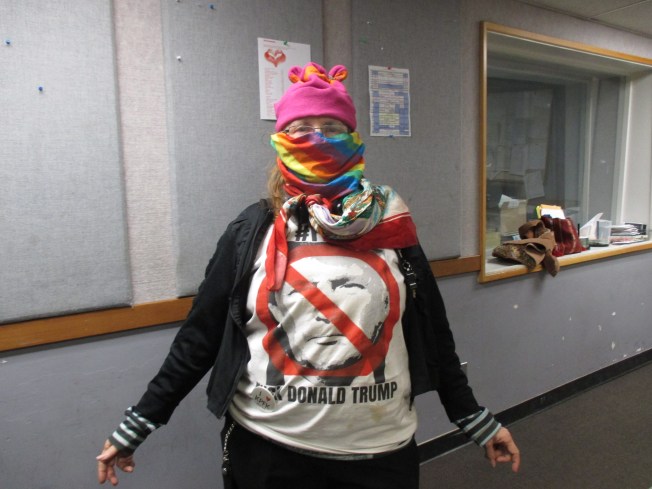



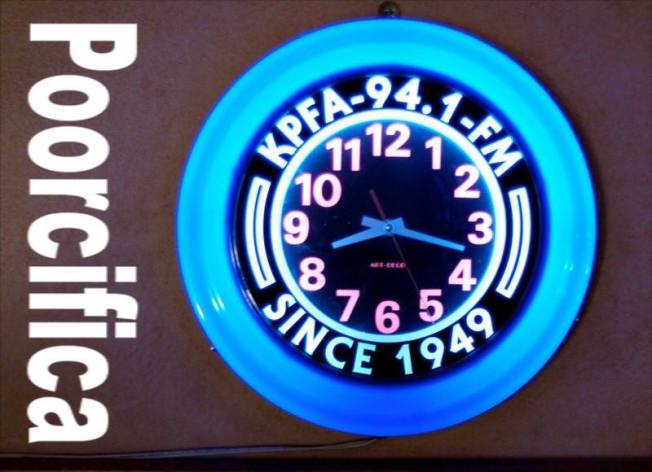
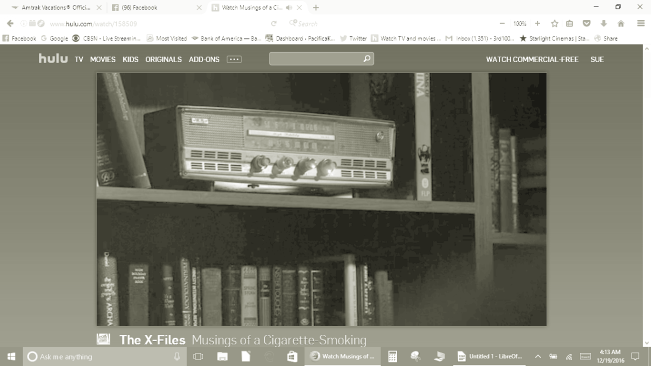




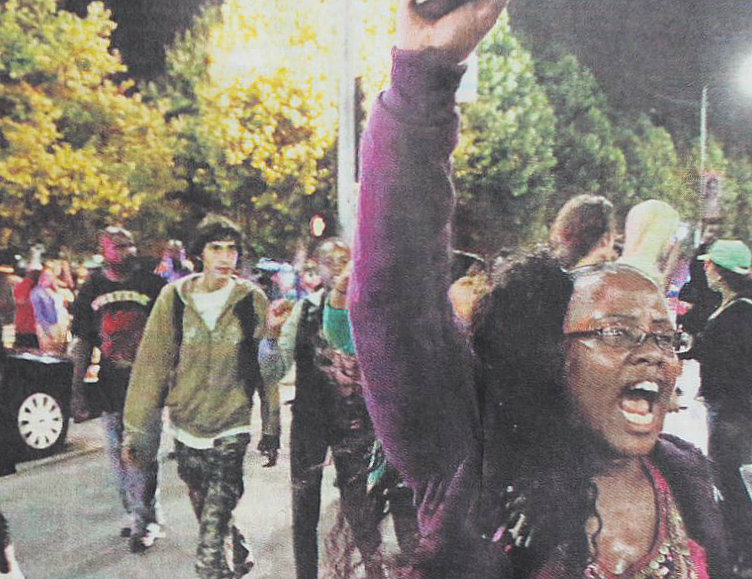

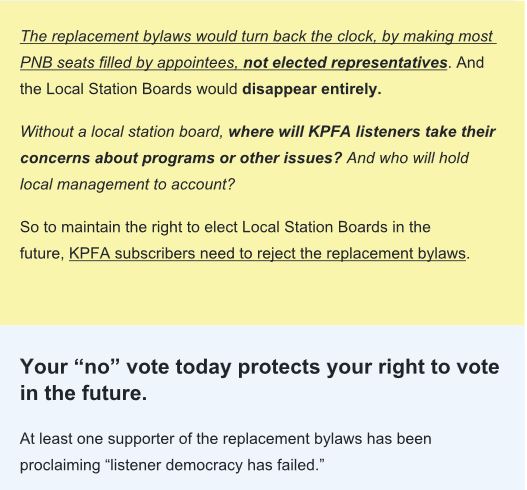






























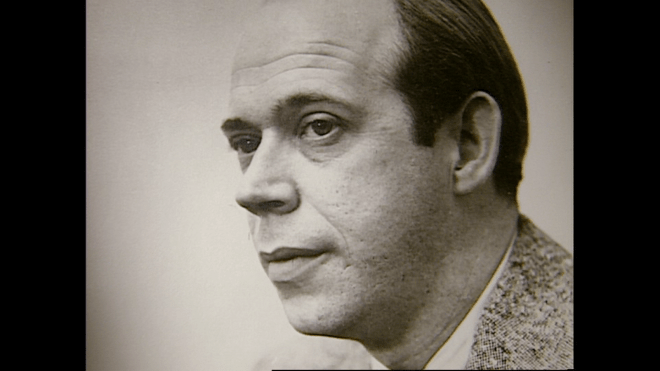






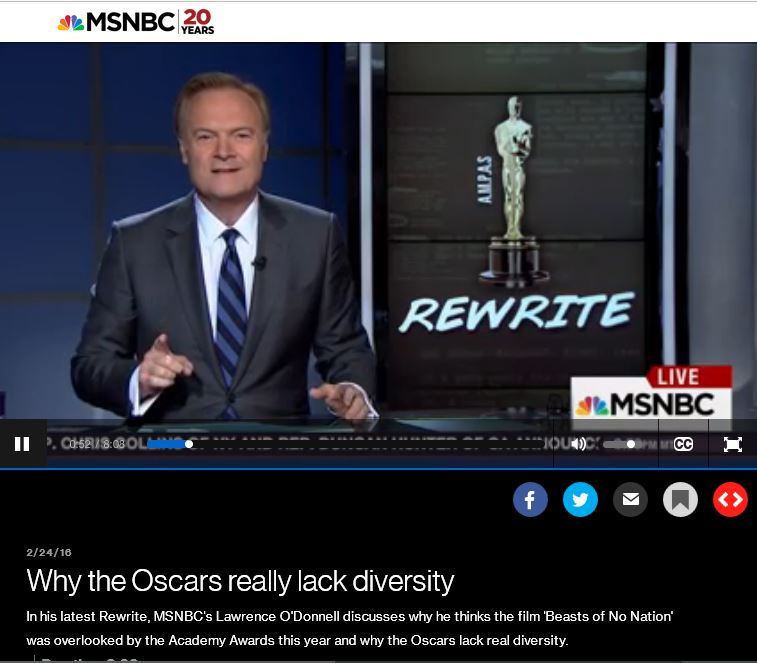


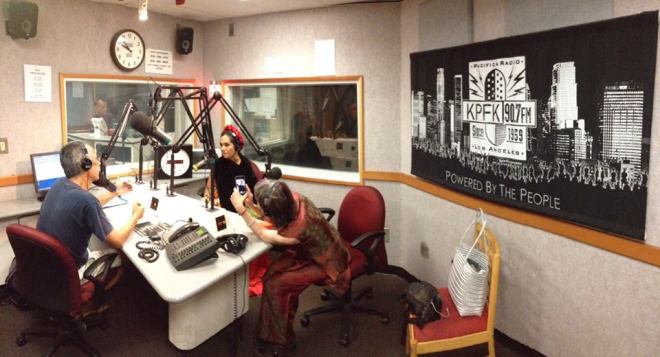





Dear Vera,not Verna,
Seriously, as they say, yours is a question for the IRS, though its Director recently stated that they do not answer about 60% of the calls made to the IRS.
That’s about as helpful as I am, but my excuse is that I am not a non-profit attorney or IRS-regulations-skilled.
However, what I think I do know, is the Paul Newman salad dressing sales/charitable foundation was threatened recently by the IRS for a huge payment of back taxes because the IRS rules state that a non-profit cannot own a business–as the PN Foundation apparently does.
Can a pet food/supply company simply donate a percent of sales to such a national umbrella animal humane society?
Yes, it seems, as some national commercial product-makers seem to do from what I have seen in the past with a “lean cuisine” product and aspirin, to name but two.
So, such a hook-up would be great with Iams or Friskies — or better still, with such as PetSmart as the overall distributor.
Another thing, should such sales be conducted, the IRS again has rules regarding limits of income in a percentage of what other funds the non-profit raises.
I believe there is a rule about standard donations—that a non-profit organization cannot receive more than 30 percent of its funding from any one source—and it can reasonably be deduced that includes sales of products.
So, you can see the waters here are murky and could be hazardous. Thus, the need for an attorney skilled in non-profit law.”